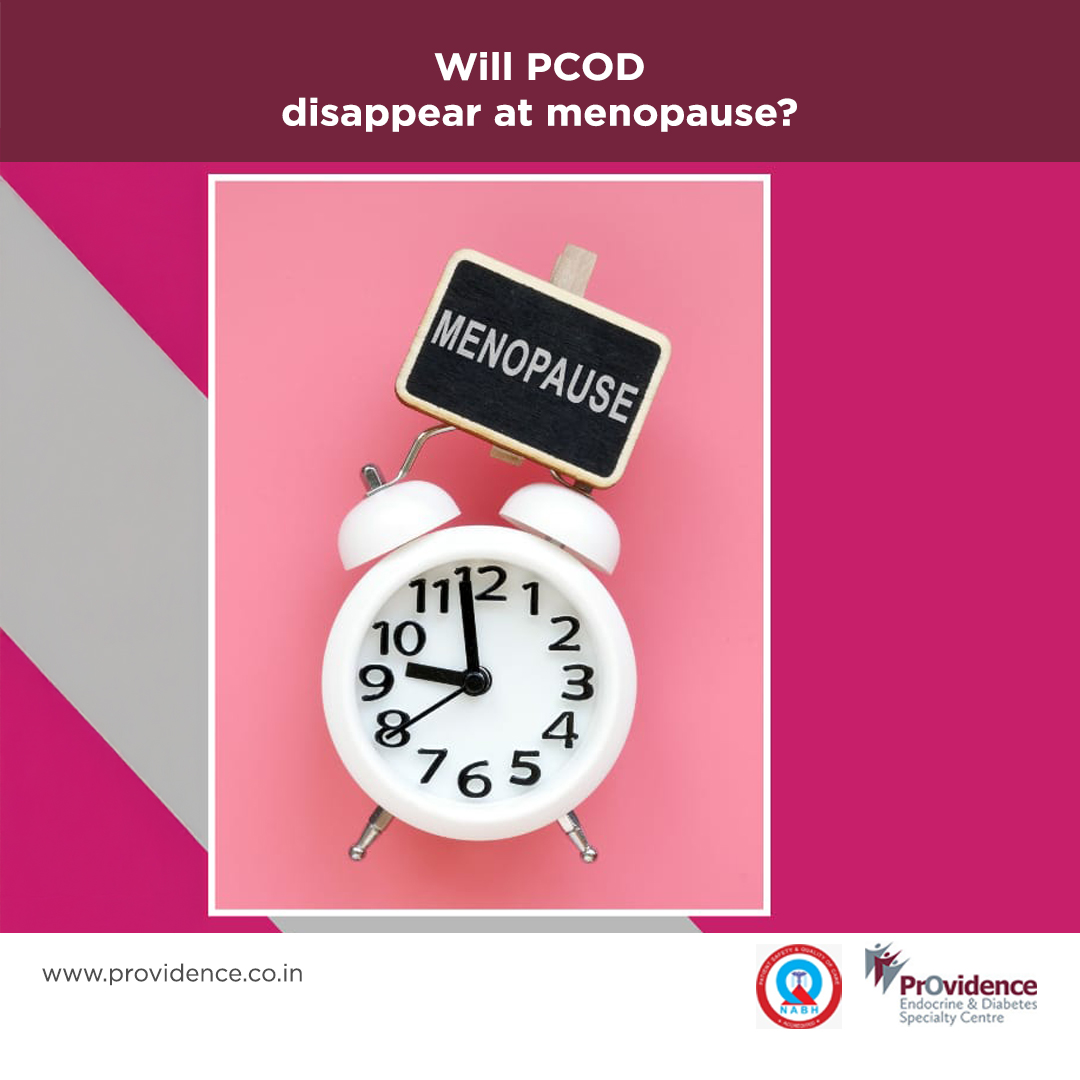Polycystic ovary disease is a hormonal problem that affects women in their reproductive age groups and cause menstrual irregularities infertility, hirsutism, glucose intolerance and obesity. But menopause marks the end of the reproductive state.Even though menopause doesn’t cure PCOD it can become less pronounced as a woman reaches her menopausal state around the age groups 45-55 years .Both PCOD and perimenopausal period ( the period before actual menopause ) share some common features like delayed or lack of menstruation for few months, acne, mood swings, changes in glucose metabolism and cholesterol levels and even abnormal weight gain. Women with PCOD are at increased risk of developing these problems putting them at high risk of developing cardio metabolic complications once they reach menopause. Hence proper life style management like dietary interventions, regular exercises and weight management are crucial to avoid these complications and should take the advice of the health care provider as and when required.In short,while menopause doesn’t cure PCOD, it can alter some of the hormonal imbalances and potentially reduce some PCOD symptoms.
Dr. Deepa G, MHSc (Diab), Dip ( Diab)



